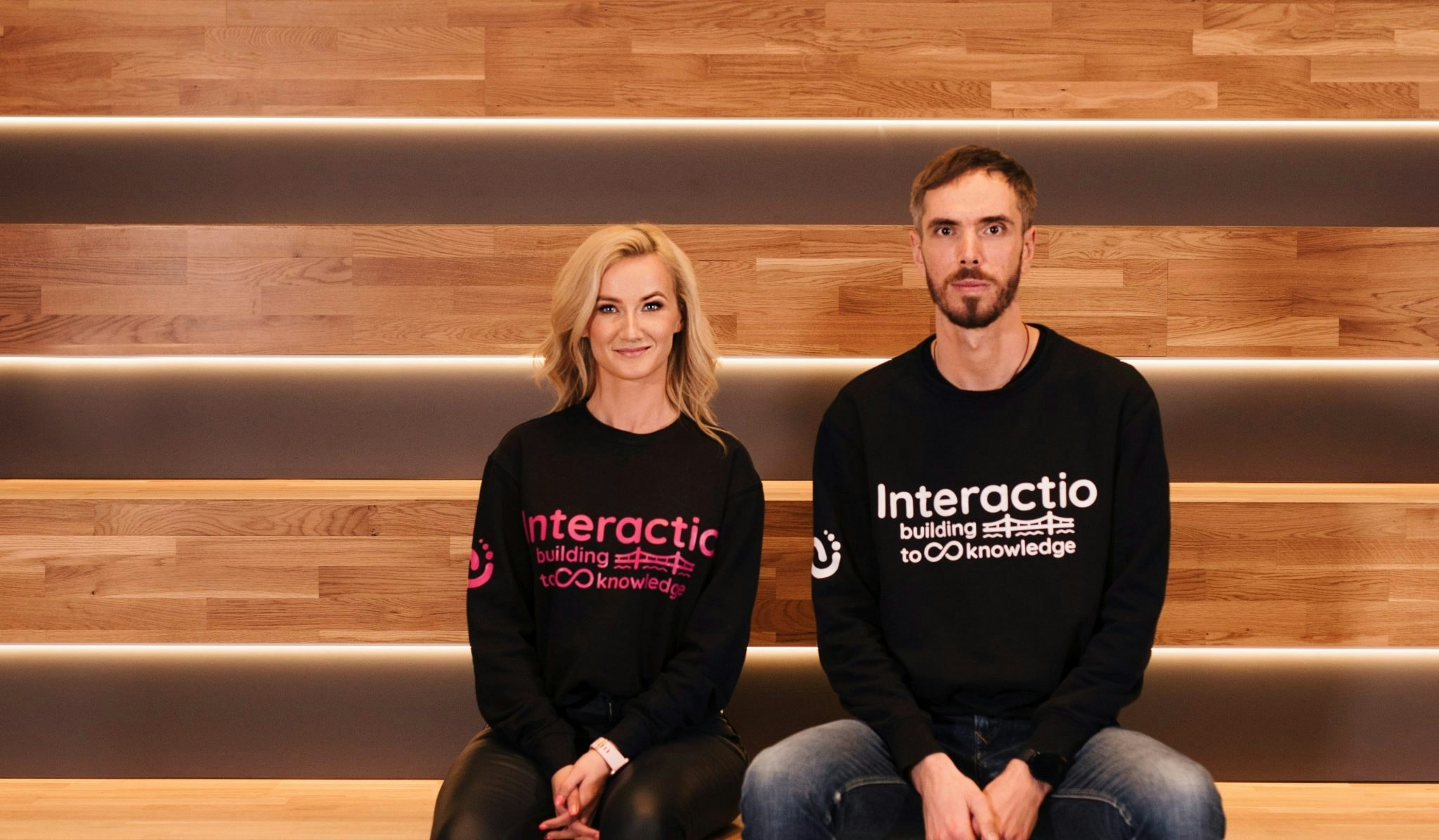Typing “how to pitch” into Google returns over 2.7bn results — not particularly helpful if you’re looking to win €10k at 50 Founders Battle, TechChill’s annual pitch competition for early-stage startups, now in its 10th year.
More helpful in this case will be talking to previous winners of this pitching competition to find out what helped them impress the jury and bag the prize.
We spoke to Anna-Liisa Palatu of Woola, which makes compostable packaging, Rolands Mesters of freemium open banking platform Nordigen and last year’s winner (and 2020 finalist) Sergey Jakimov of medtech Longenesis, who each imparted gems of pitch perspicacity.
Applications for the 50 Founders Battle are open until March 25, so if your startup has not received more than €250k in funding, and you think you can pitch better than 49 other founders, you can still apply here.
May these tips guide your path to greatness.
1/ Don’t pitch as if you’re pitching to your grandma
Unfortunately this advice is still given to people, as if women magically lose their ability to comprehend basic business ideas when their children have children — and it’s one Jakimov has heard before.
“To be completely honest, I find this pretty useless,” Jakimov says. But what he does believe might help is to simplify your message so a person without knowledge specific to the startup field can clearly understand.
Jakimov should know, as he won the battle last pitching “a B2B platform for biomedical organisations to reduce the length of clinical trials”. That's pretty far from an “Airbnb for NFTs” or “Uber for handbags”, so his pitch to an audience of generalists took some explaining of niche biomedical concepts.
Explaining niche industry terms is good — talking down to your audience is not
Mesters agrees, saying that actually “there's a growing number of grandmothers that are becoming quite well-versed in Web3, open banking and tech.” Sifted could not confirm this statement independently, but did find a grandmother in India who started a home-cooked food-delivery business at 94 years old. Inspiring — and proof that while explaining niche industry terms is good, talking down to your audience is not.
When asked if he’d ever actually tried to explain to his grandmother what his company does, Jakimov answered: “I absolutely have not and I have very little intent to do so.”
2/ Understanding the basic mechanics helps you explain
Talking down is bad but talking simply is good — and a true sign of brilliance is if someone can help you understand something they came up with as if you thought of it yourself. But talking easy takes a lot of hard work.
“The more you know the subject, or the more of an expert you are, the easier it is for you to explain it in very simple language,” Jakimov says. “Don't try to sound smart at the expense of terms that people will not understand. It just won’t resonate with the audience.”
The more you know the subject, or the more of an expert you are, the easier it is for you to explain it in very simple language
In order to achieve this easy-to-understand language, it’s important to have a deep understanding of all aspects of what your startup is dealing with. “If you grasp the very basic mechanics, you’ll sound smart automatically,” Jakimov says.
Also, don’t try to get your audience involved. Mesters told us that ‘engage with the audience’ might be the worst tip on pitching he’s ever received. “It's rare that [the audience] is critical for telling a story. The risk is doing something that just looks awkward.”
3/ Forget the script — or don’t
Many pitch workshops are aimed at practising a second-by-second timed pitch, with no improvisation or room for error *dramatic pause* — but two finalists reject this premise outright.
“I don’t personally believe in pitch training, the result doesn’t always come across as sincere. If you listen to 10 pitches in a row, you can tell which ones were crafted at the same workshop,” Palatu tells us.
Jakimov goes further, saying: “I never have the actual speech. I never have the text. I don't have the script. I never, never have it. What I have is a slide deck. Most of my pitch preps are maybe 10 or 15 minutes long.”
I never have the actual speech. I never have the text. I don't have the script
Mesters, on the other hand, does the complete opposite. He says: “The advice ‘Don't try to memorise all of the speech, word by word,’ doesn't work for me. I need to memorise everything word by word to get the right flow and use the right words.”
In fact, in the hour before his pitch he leaves the venue, finds a car park or empty street nearby and practices until it’s his turn. “I might wear AirPods lest someone thinks I'm just talking very intensively to myself.”
4/ Take confidence from being the expert in the room
Unlike an oral exams or thesis defence, the jury is hardly ever an expert on the field you’re pitching about — you are.
“Most startup founders that are performing on stage don't realise that they are actually the experts in the topic,” Jakimov says. “And once you realise that, you feel much more confident.”
“They essentially don't expect anything from you, because they have no idea what to expect!”
Palatu feels more or less the same. “You can’t take pitching too seriously, like most things in the startup world. We are way past the time when overconfidence and forced smiles convinced investors that you knew what you were doing.”
She also jokingly mentions the Human Heater pitch from the HBO series Silicon Valley as inspiration of confidence. “I don’t draw a lot of inspiration from their actual pitch but the Q&A part is great practice, and great fun.”
Mesters has a totally different approach to pepping his spirit. “I watch a good amount of freestyle rap battles when preparing for my pitches to get the right energy and vibe. There's a lot in common between pitching a startup and freestyle rap. Both require practice and a ton of confidence,” he says.
Jakimov puts it bluntly: “It's not a question of if you will fail or not. You cannot fail, because you know your topic and they don’t.”
5/ Silence can be golden
So, basically, parasite words are words like basically, so and right, right?
When it comes to weird gestures and parasite words, what helps Mesters is "to write a pitch I like, memorise it, practise it in front of a mirror and iteratively simplify it”.
“It’s essentially an empty space,” Jakimov says. “This is where a lot of people lack vocabulary. A good example of a parasite word is pretty much any swear word in normal life, right? People who swear a lot, they often use these words because they don't have anything to put in there. They're not there. So it's essentially an empty space, right?”
Don't be like Busta Rhymes, be more like Bruno Mars: Talk. Slow
The same goes for pitches. If you don’t catch your parasite words in advance by either practising in front of a mirror, like Mesters, or analysing your pitches afterwards, like Jakimov, you run the risk of sounding like you’re just filling space — which is unwise in a time-constrained environment like a pitching battle.
People underestimate the importance of just shutting up instead. “You can try talking in short sentences. Make pauses when you feel like there should be a pause. Make pauses after the most valuable or the most impactful messages that you make,” instead of filling the space with nonsense words.
Mesters puts it more succinctly: “Don't be like Busta Rhymes, be more like Bruno Mars: Talk. Slow.”
TechChill 2022 is right around the corner — if you want to learn more about the booming startup ecosystem in the Baltics and watch the most wanted pitch competition of the year, TechChill 2022, the biggest startup event in the region, is right around the corner. Get your passes now.
And if you feel your pitching skills are up to par with the best startups in Europe, you can apply now for a spot in TechChill’s 50 Founders Battle and pitch for one of the many prizes – no strings attached. Moreover, you can roam TechChill’s keynotes, hang out with other founders and investors and enjoy beautiful Riga. Applications are open until March 25 — see if you qualify and apply here!



